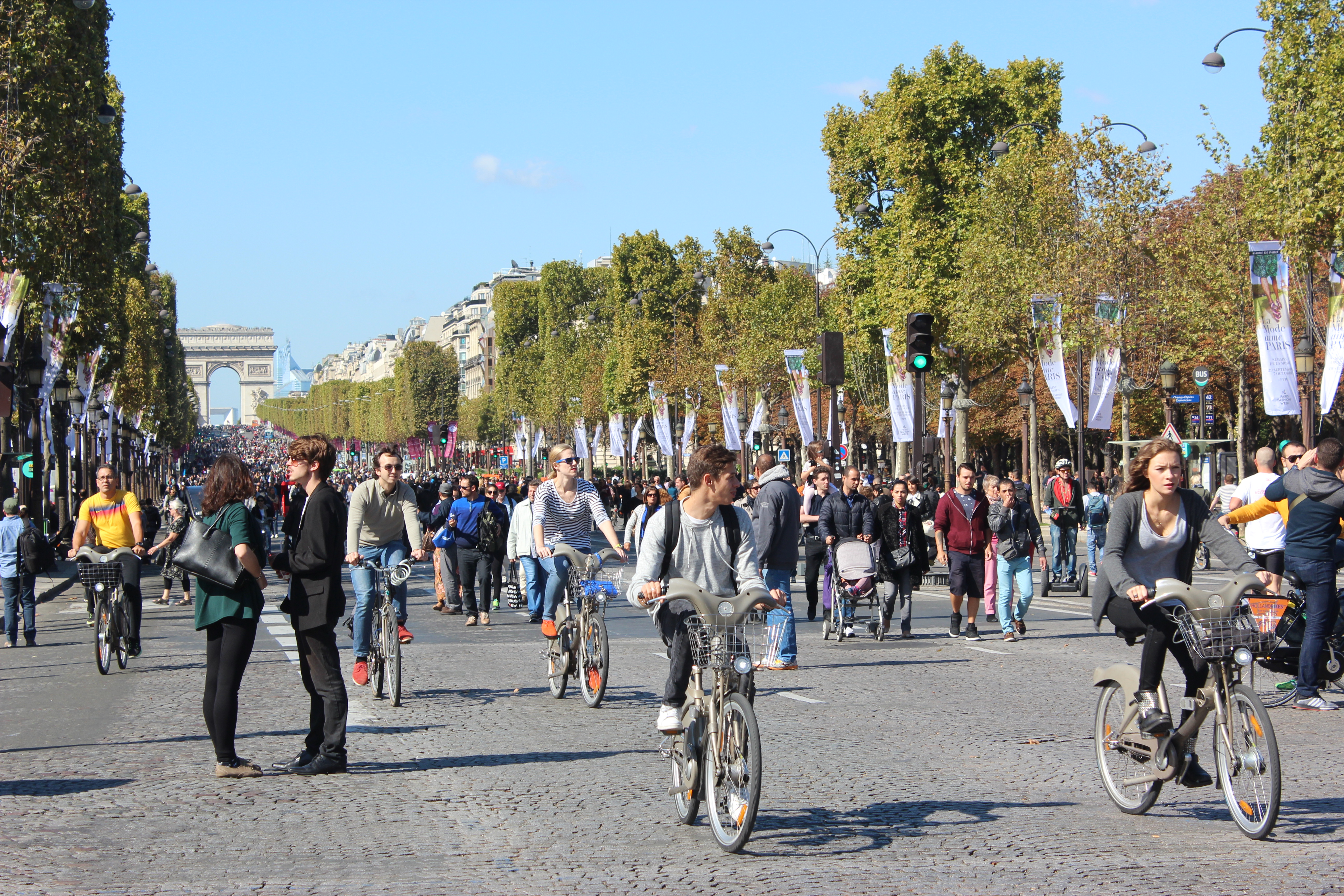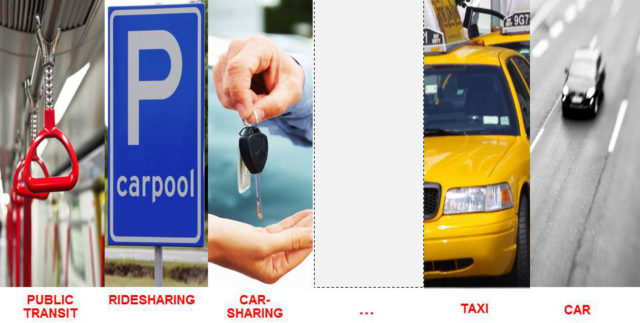
Shared New World
October 13, 2015 — Blog
Once upon a time, the World of mobility was simple.
There was Good and there was Evil.
The train was Good. High-tech, ecofriendly, safe. Collective.
The car was Evil. Selfish, polluting and dangerous.
Yet, we have never really stopped loving the car; the symbol of freedom from the time of our youth. Even though this one time tool of freedom backfired as drivers became more and more dependant upon it and traffic jams grew.
The 90’s were the years of tram revival. As urban sprawl was now vilified, it helped to make city centers fashionable again. The dream of the car-oriented city had lost its cool and, at least in Europe, huge amounts of money were spent to redevelop public transport.
And then, while this seemed destined to last, our simple world begun to crack.
It first cracked because people don’t like to be told what they have to do. And summoned to choose between their selfish car and collective and sustainable trains, their minds turned to something new: sharing by choice, not compulsion. So although people were falling out of love with communal and heavily structured public transport, the ‘sharing society’ started to fall in love with an alternative to ownership (as long as they could control it).
It cracked because there was no more money. Since public transport had been a totem of solidarity, it had been made less and less expensive for users. However, as each year went by, it became more and more expensive to provide, especially when public money became scarce.
It cracked because of digital revolution. The explosion in the power of computers opened new horizons. The development of passenger information put the choices of the traveller first rather than treating them as just a number. From Blablacar to Lyft, shared solutions appeared as friendly new ideas for hipsters and millennials, proudly wearing large pink moustaches.
Then competition got fiercer. Friendly startups became threatening: wearing jeans and sneakers while using the most brutal methods to conduct business.
And the impact upon public transport was ambiguous: for better informed travelers, public transport was made more convenient hence more attractive. And at the same time, these better informed travelers could now compare modes on the spot; gauge metro against bike, car against train. Better informed, passengers have become more demanding and less captive!

A “shared new world” is emerging.
In this new world there won’t only be private cars, taxis and public transport but a whole range of services that people will choose to use. And it is key to understand that this is not about the public transport market but rather the entire mobility market. In France, the public transport market accounts for 25 billion euros per year, the mobility market including purchases of private vehicles is 150 billion euros: 6 times bigger. The multiple is certainly far higher in the US. It is impossible to understand some recent market valuations if we limit the focus to public transport or even to taxi market.
In this new more complex world, those who provide the services will change. Drivers will be self-employed and often only part-time, using this highly accessible and flexible work to top up other income. New social questions will be raised about worker rights, public safety and the role of operators versus individuals in regulating activity. The fairness of the deal between operators and drivers will be key for sustainable market development.
In this new world, public authorities will play a different role. They will not only contract with an operator, but also regulate private services, encouraging competition and innovation. Transdev’s belief is that they will continue to play a key, but maybe a changing role. Whilst businesses can be disrupted, it will be more difficult – even if some global actors may be tempted – to disrupt local politicians.
The future will be about buying mobility “as a service”. Much like software has moved from buying a product to “software as a service”. Ten years ago, you would have bought a software. You had to host it, pay for it regardless of use, update and maintain it. That’s all over: now you just pay for the service. Ten years from now, you will buy access to different mobility solutions, choosing the solution you need at the time you need it. The concept of investing in a car or a season ticket will be gone, replaced by highly accessible transport modes connected and accessed through the technology in your hand. As with software, this will not be an overnight change but it is coming fast; not in decades but a very few years.
As an operator, Transdev wants to be part of this new world. We think that in this new world, we will have two roles.

We will continue to be operators: operators for classic mass transit, which will keep on being an important element of the whole picture and; operators of new services. The perfect example is Split, a shared-ride startup launched in Washington, DC in 2015 as a result of Transdev’s significant investment. Split is changing the way Washingtonians move around their city by offering affordable, convenient on-demand transportation. How can they do this? By using a sophisticated algorithm to match multiple passengers headed in the same direction, allowing them to share a split vehicle on the way, saving them money (rides cost half the price of a taxicab), and resulting in higher income for the drivers. Since its launch in May 2015, Split has seen a significant amount of growth. Completed rides have been growing at a rate of 15-20% week-over-week, and, as Split continues to increase its service area, the rate of sharing has increased significantly. Today, roughly 30% of all Split rides are shared, and, in the busy hours, often 100% of rides are shared. With thousands of users riding thousands of times per week, Split is pushing the reality of transportation in modern metropolitan areas.
We think there will also be a huge need for mobility aggregators who will work with transport authorities to offer customers integrated transport solutions with commitment and warranty. A big part of this role will be about information, trip planning, ticketing, event management. In Lyon, we have developed an intermodal, real time and predictive trip planner. This allows people to compare not only different public transport solutions but to gauge cars against PT, or even mix them, using parking. We are also developing it in Toronto. These services are key steps towards this new job of mobility aggregator.
Where will this end? What will this new world look like? Nobody knows exactly. But we can make some educated guesses. We can guess, for example, that Mumbai should be the first megalopolis to skip the private car era. For one simple reason: it is so dense it is impossible to organize mobility without sharing.
At the beginning of the 20th century, it took ten years for cars to replace horses in New York. How long will this current transport revolution take to fundamentally change the shape of travel? It’s coming very quickly and that momentum will only increase.
Transdev is a partner of Cities on the Move, our event on the future of urban mobility.